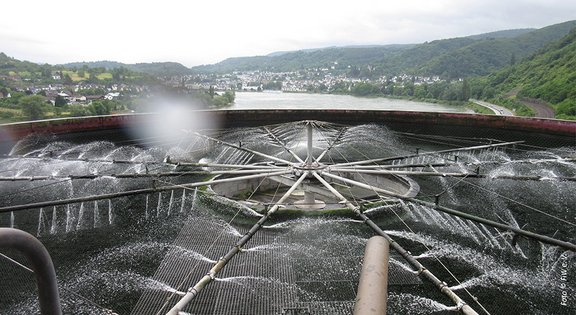Sewage sludge management in the Rhine-Hunsrück district (Germany)
Future treatment and utilization of sewage sludge from the sewage treatment plants of the municipalities of the Rhine-Hunsrück district in Germany
The Rhine-Hunsrück district (RHD) includes seven local authorities, which operate 33 municipal wastewater treatment plants of different sizes. Most of the plants have an activated sludge plant, but the catchment area also includes 6 trickling filter plants, 3 pond treatment plants, a sequenced batch reactor (SBR) plant, a constructed wetland and an oxidation ditch. Currently, the sludge produced is generally used in agriculture or sent to sewage sludge humification plants. More than half of the total amount of treated water is purified by only 4 of the region's largest wastewater treatment plants.
In Germany there are expected several restrictions. On the one hand, restrictions on agricultural sewage sludge utilization and, on the other hand, a medium-term ban on the soil-related utilization of sewage sludge from size classes 4 and 5 waste water treatment plants with the obligation to recover phosphorus. Due to these facts, the engineering company Dr. Siekmann + Partner mbH (IBS) was asked to develop in cooperation with the FiW a concept for sustainable treatment and utilization of the district’s sewage sludge under consideration of the current and future legal conditions.
In on-site meetings, an analysis of all sewage treatment plants was carried out as well as of one site, which has an existing waste heat potential. The required data of the sewage treatment plant was collected by a digital questionnaire and evaluated. Various scenarios have been developed for the utilization of sewage sludge from municipalities. Based on a rough planning of the necessary treatment steps, e.g. drying and thermal utilization of the sewage sludge as well as transport logistics, they were evaluated economically and ecologically. The transferability of the results to other areas in Rhineland-Palatinate (Germany) was then investigated.
Under given conditions different situations of sewage sludge utilization were identified in the district:
- soil-related sewage sludge utilization is still planned in some parts (as far as possible until 2025)
- mono-incineration in a central (external) and/or
- (internal) semi-central sewage sludge incineration plant
Co-incineration of the sewage sludge was excluded, as there is no possibility of co-incineration in the neighborhood and a full technical phosphorus recovery is currently not realistic from an economic point of view.





